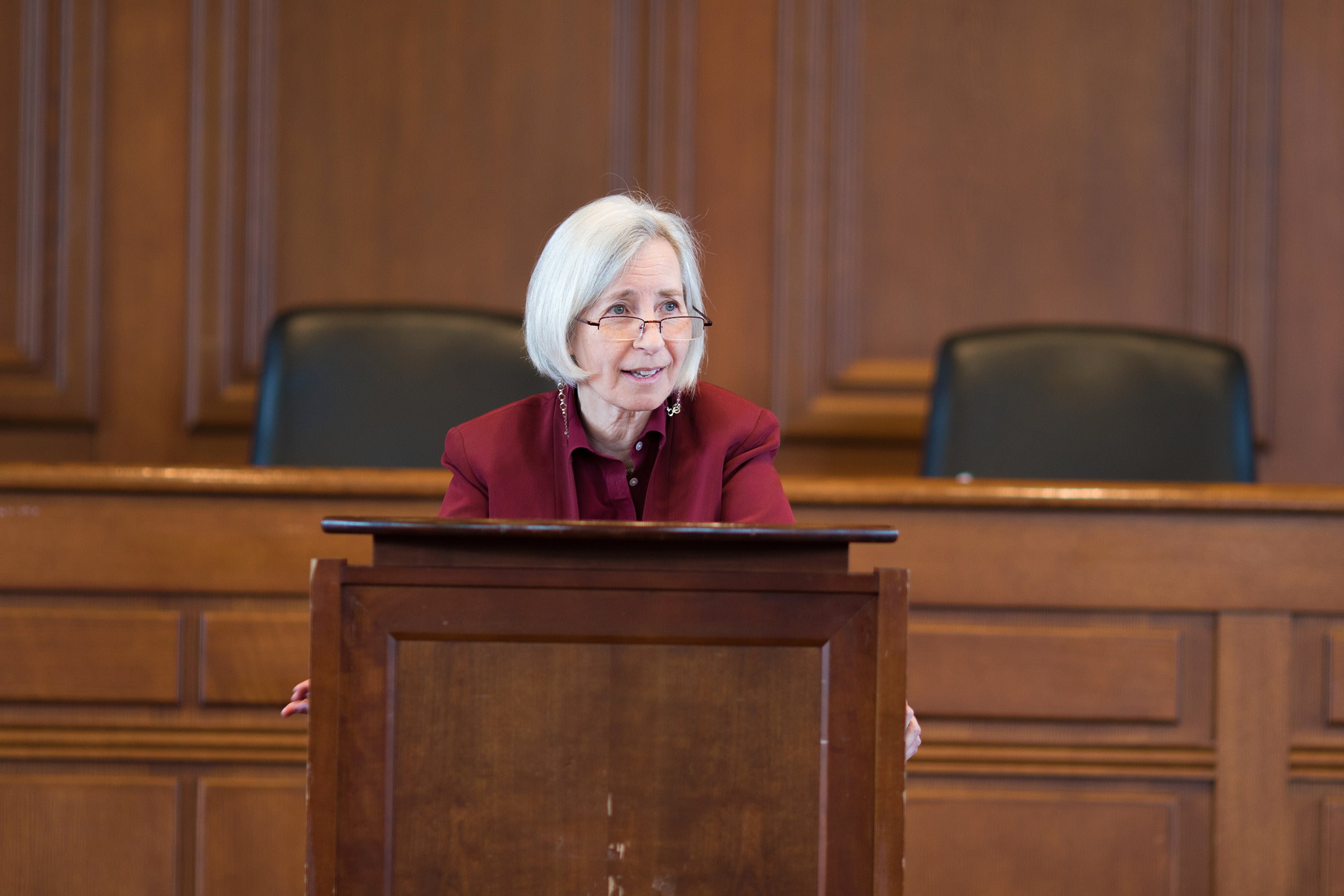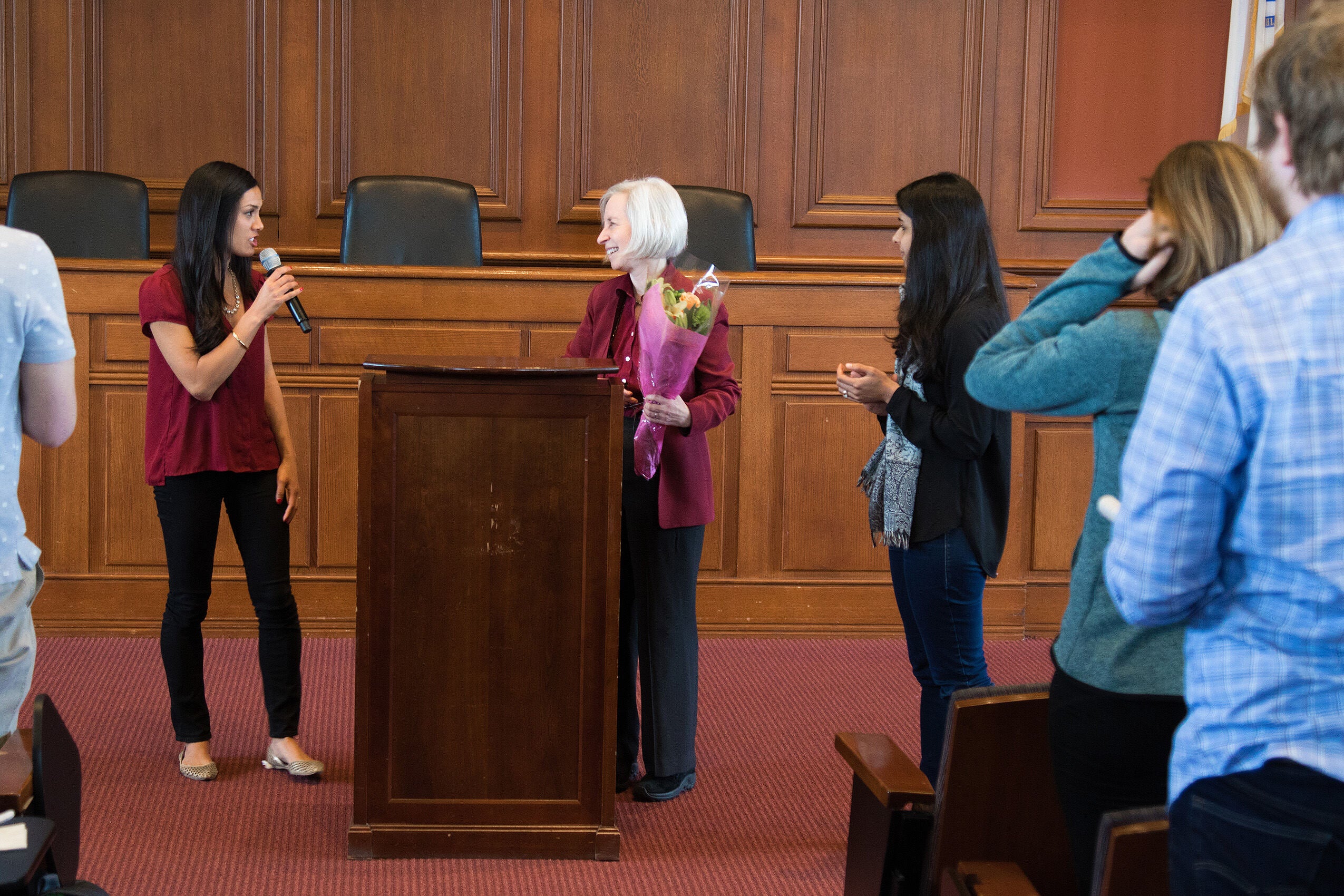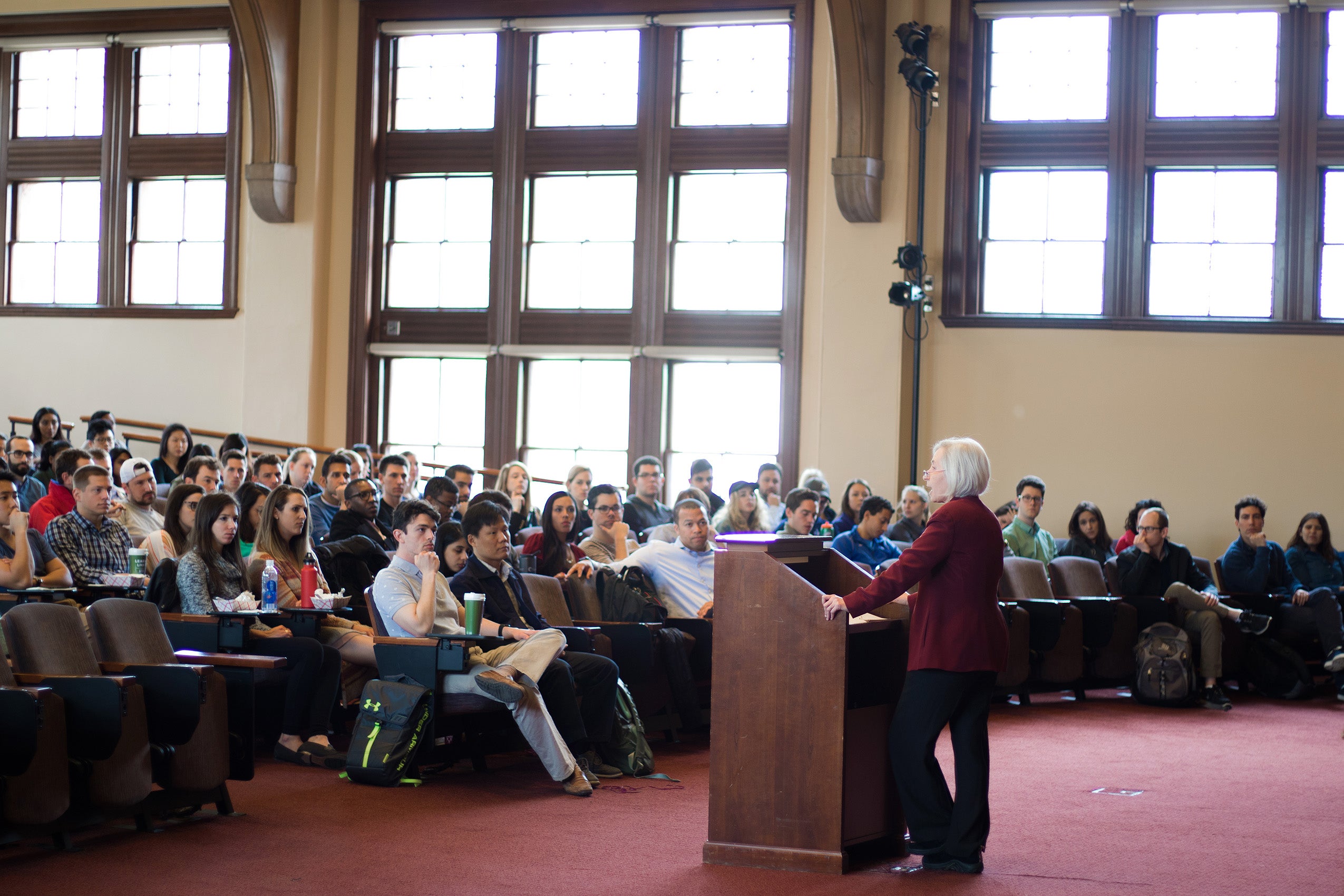As she prepares to step down as Dean, and to join her audience in beginning a new chapter, Martha Minow focused in her Last Lecture to this year’s graduating class on mistakes she has made — “these are all pre-Deanship,” she quipped, “because we only have an hour” — and the lessons she has learned from them. “I wish you many great falls and many great standings-up again,” she told them. “I wish you not only great success and happiness, but also many great mistakes.”
The opportunity to appeal a contempt conviction of a Rhode Island newspaper and its editor was especially compelling, Minow recalled, because it harkened back to the 1963 arrest of Martin Luther King, Jr. and other civil rights leaders in Birmingham for leading a peaceful protest after being denied a permit. Both cases centered on a collateral bar rule stating that plaintiffs could not challenge the underlying constitutionality of a ruling once they had violated it. “I found this outrageous,” Minow said, so she disagreed vocally when a procedural defect and the best interests of the client resulted in the legal team’s decision to dismiss the case before it reached the Supreme Court. The lesson? “Maybe other people know a little more than you do.”

Minow spoke about clerking for Justice Thurgood Marshall, who instilled in her the importance of following rules, especially when it would be difficult to prevail on substance — a lesson that encouraged her to teach civil procedure at HLS. Later, in a project for an NGO, her expertise in disability law came up short against her lack of experience in copyright, contracts and antitrust, which she addressed by reaching out to colleagues here. “There were many lessons for me,” she recalls. “One was in humility — I knew nothing relevant, to put it mildly. Another was gratitude for the generosity of so many people; another was wonderment, at the many tools of law.”

“There are some common themes and some tensions here.” Minow told her audience. “One is that process matters, but it shouldn’t trump substance, at least not all the time … so that’s a struggle. Another is that focus matters — eyes on the prize — but so does flexibility. Another is that serving others matters, especially if you’re a lawyer, even more than serving abstract ideals, but ideals matter too. But maybe the most important lesson for me is that mistakes are a gift. The mistakes that I’ve made — these and others — have been the touchstones for learning, more than any success that I’ve ever had.”
